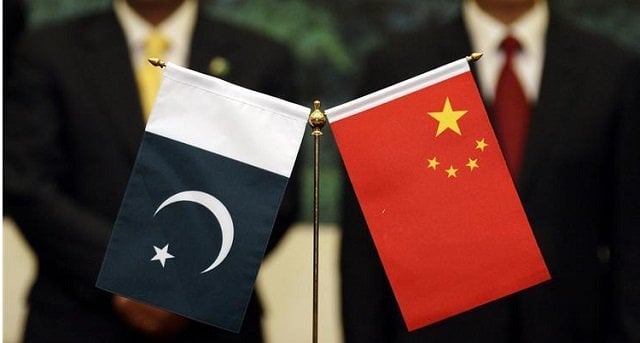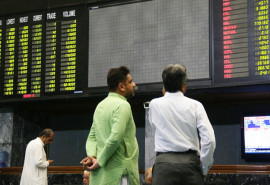
In an exclusive interview with China Economic Net in late September, Naghmana said, “We hope that in the next few months, it will become operational. With the FTA becoming operational, the prices will in any way go down, because import duties will not apply then.”
Although the reporter asked for a more specific timeline on the FTA becoming operational, the ambassador said, “That depends on how quickly work is done, because on our side all the procedures have been completed. On the Chinese side, there are a few procedures that are left. So we think it is going to be sooner rather than later. We just need to wait a little more, because governmental procedures have to take time. But I think it will be very shortly very, very shortly.”
The envoy said that the first phase of China-Pakistan Economic Corridor (CPEC) is nearing completion and the second phase has now started, which is actually the establishment of Special Economic Zones in various parts of the country.
“With the establishment of these Special Economic Zones and increasing number of agreements and cooperation in the agriculture sector, which is a priority for both President Xi and Prime Minister Imran Khan, I think this is one area where there is a huge potential for investments, growth and then re-export of those value-added products to China.”
Talking about the recent mango festival organised in Beijing, Naghmana said, “Mango is our leading export product and one day we hope to see Pakistani mangoes being sold in supermarkets and markets all over China.”
Responding to a question on the difference in prices, the envoy said the price of a product is always cheaper in the country where it is produced. However, by the time the product is exported, duties, taxes, and processes are involved.
“It either has to be sanitised by heat, water vapour or through other technologies. Those technologies are not very easily available in Pakistan.”
She added that China can actually help reduce prices of Pakistan’s agricultural products, particularly mango and other delicate fruit, by having joint ventures with the growers and exporters.
“Secondly, I think with the completion of CPEC and the establishment of cold chains, a lot of products can then be transported by road and they won’t have to be airlifted. Mangoes cannot be shipped up to now, because they have a very short shelf life and roads with a cold chain are also necessary for fisheries and other agricultural products. So that is another area where I think a lot of our Chinese friends and investors have an opportunity to do business in Pakistan, which would be mutually beneficial to the importers and exporters, and is a nice way of introducing good Pakistani agricultural products at reasonable prices here in China.”
Motorway project
The ambassador also talked about the delay in the operation of Sukkur-Multan motorway, saying, “These are huge projects, so some delays are normal. It’s nothing to be really very alarmed about. The actual project itself has been completed. So the highway is there. But then along with this highway, there are certain other things that need to be established.”
She said, “All CPEC projects have the absolute and full support of the government of Pakistan, of the people of Pakistan, of all the political parties across the political divide. So there is no confusion or no controversy over either the importance of CPEC or the importance of completing the projects in time. And some of the projects, as you know, have been completed even before time.”
Talking about the visa process for businessmen, Naghmana said, “For the Chinese, as you know, we have on-arrival visa policy and now we also have visa online. So I don’t think there should be a problem. Maybe some people only apply for three months and then they realise that they need more than three months. They don’t need to come back. They can apply to the department concerned in Pakistan and it’s very easily extended.”
Referring to Pakistan’s visa policy, she added, “We are liberalising. One of the first countries with which we’ve liberalised the visa regime is China. There is so much work going on. There’s so much people-to-people contact. There’s so much political contact.”
Joint ventures
The ambassador also spoke about potential Pakistani categories where China can invest.
“There are certain products which have traditionally come to China, which are very much appreciated here. We export a lot of rice to China, not Basmati. Basmati is not that popular in China. We have another category of rice which is very close to the Chinese kind. It’s small glutinous rice. So there’s a huge market for that here.
“Then sugar is increasingly being imported into China. And sugar is of very good quality. And yarn, we produce a lot of cottons and you have a huge textile industry. So yarn comes to China.
“And then, of course, we have a lot of stones. For example, we produce the best onyx in the world. I mean Balochistan is the only area in the world that produces onyx. And Chinese people love onyx. Then, a lot of gold and copper comes from our mines to here. So we have a lot of potential both in minerals and gemstones because our northern areas are full of beautiful gemstones. We do not have that advanced technology to polish and create them. So that is another area where we are looking for potential joint ventures.”
She added, “The area that has the most potential and again the area that has the focus of the leadership of both countries is agricultural products, development of farms, research on hybrid seeds, and research and cooperation in cultivation.
“Then there is a huge prospect of cooperation in drip irrigation because we are now trying to go to drip irrigation because of the shortage of water. China is one of the leading countries that have really made very good use of drip irrigation. So I think agriculture is one area where there is a huge potential for further cooperation, joint ventures, and investments. And then, of course, the export of the material to China and beyond China also.”
“I think they also feel that if they develop a hybrid quality of Basmati rice, then it’s a patent for Pakistan Basmati rice and it may lose its aroma and taste. We want absolutely pure Basmati. So I think they want to preserve the originality and the texture and the aroma and the length of Basmati. I think that is why they don’t want to open Basmati.”
This article originally appeared on the China Economic Net
Published in The Express Tribune, October 7th, 2019.
Like Business on Facebook, follow @TribuneBiz on Twitter to stay informed and join in the conversation.

1731479848-0/Elon-Musk-and-Vivek-Ramaswamy-and-Donald-Trump-(1)1731479848-0-165x106.webp)















COMMENTS
Comments are moderated and generally will be posted if they are on-topic and not abusive.
For more information, please see our Comments FAQ